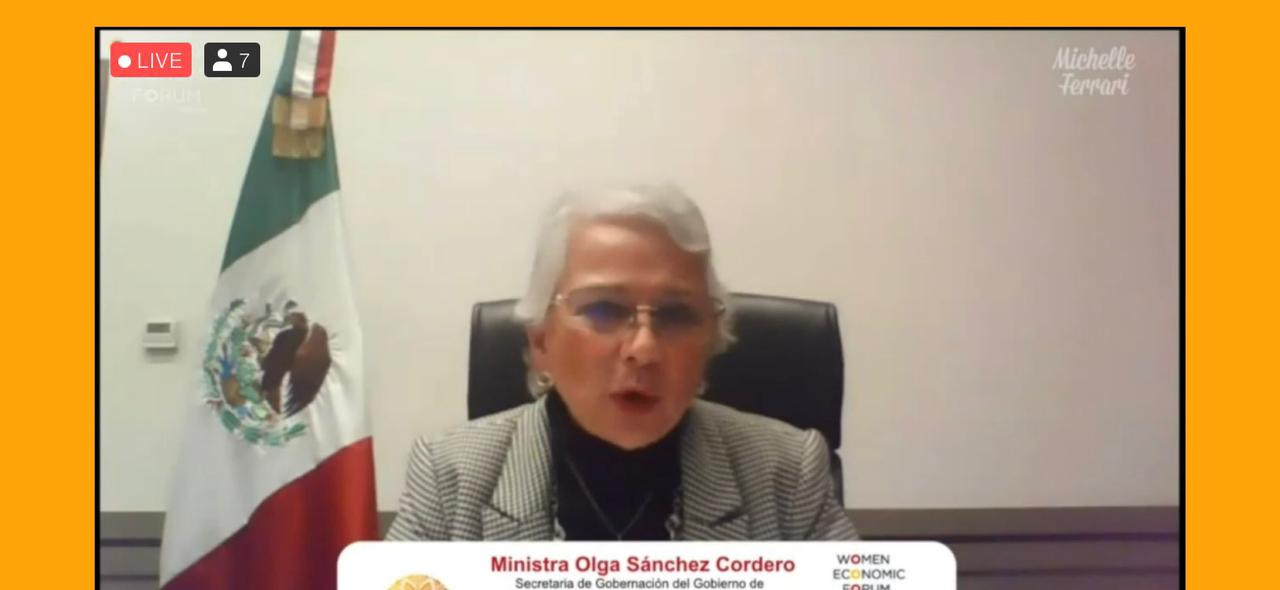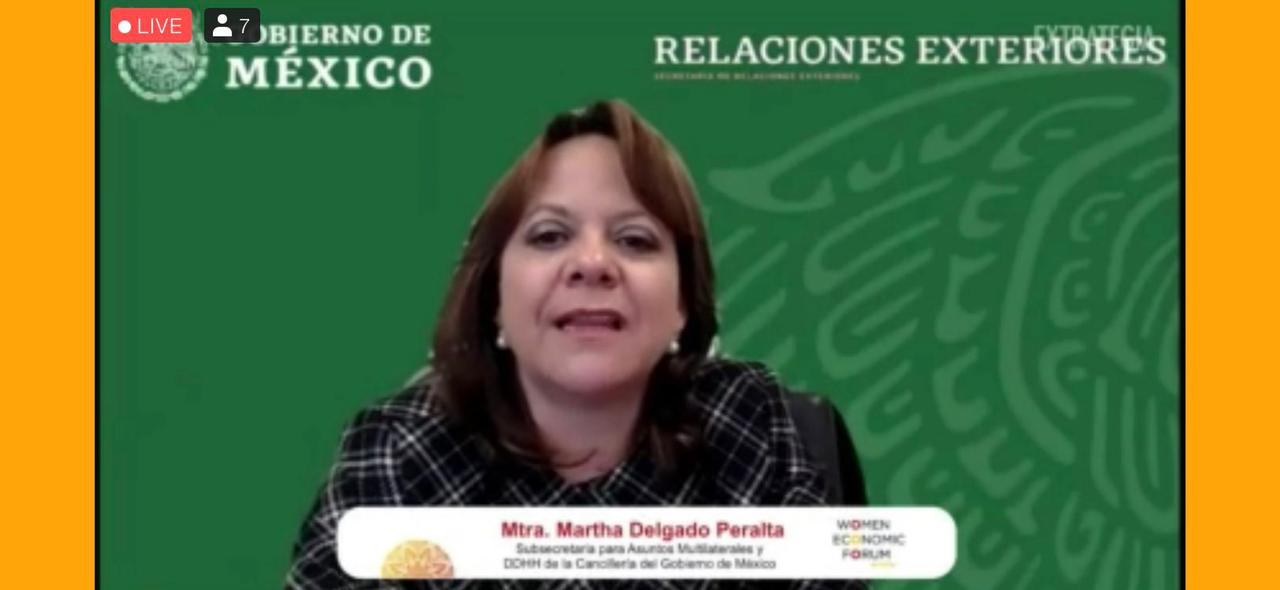- We are experiencing a generalized cultural revolution that involves everyone, but especially women, she said.
- The Secretary took part in the virtual Women Economic Forum (WEF-Spain) together with the Undersecretary for Multilateral Affairs and Human Rights of the Ministry of Foreign Affairs, Martha Delgado Peralta, and WEF-Mexico President Michelle Ferrari.
During the virtual Women Economic Forum (WEF) Spain, Interior Secretary Olga Sánchez Cordero said that a government of historic change and transformation is being formed and that, in this sense, a generalized cultural revolution is underway that involves all people, but especially women, and an example is that, for the first time in Mexico's history, a woman is heading the ministry in charge of governance in the country.
Together with the Undersecretary for Multilateral Affairs and Human Rights of the Foreign Ministry, Martha Delgado Peralta, and WEF-Mexico President Michelle Ferrari, the Interior Secretary stressed that in order to remedy gender inequality, President Andrés Manuel López Obrador's government has taken many steps and enacted public policies to reverse this gap and inequality including, among other steps, promoting parity in the makeup of the cabinet. " This is a historic step; it is a turning point for the future.
“The president has a very important phrase: ‘Leave no one behind, leave no one out." So women have not been left out or behind. We are taking part in this change. For the first time, there is a woman Secretary of the Interior in Mexico, that is, a secretary of interior for the country.
“I have had several priorities and have focused on some very specific targets. For example, I have an interinstitutional group of practically all the ministries of State and all the federal agencies with a common goal: to reduce violence against women and to give them access to a life free of violence," she said.
“And we are doing this at the interinstitutional level with a group that has very specific priorities, for example, peacebuilding panels throughout the country, in all the regions, with women's institutes, precisely to determine what progress can be made in these groups and so that women can get essential services in order to have this life free of violence. And they address violence in a cross-cutting manner in all areas and covering practically the entire Government of Mexico.”
She added that a feminist vision within the ministry also includes, for example, the issue of human rights in all areas, but not only that. It's a different way of conducting domestic politics.
“It is not the classic firm hand of a secretary of the interior. It's building a bridge, building agreements, it's helping to get things done and get done well, building well with all of the social and economic actors, politicians, with the three levels of government, with local congresses. There are a series of such diverse actors, civil society, legislators, governors, municipal presidents, business executives and all of this is coordinated and made into bridges that have been built for any conflictive situation that we can resolve."
This is done with a different, feminist perspective. “When I took office in this ministry, I said that I would see with different eyes, with those of a woman making policy. And a woman making policy does it differently, and that is what I have tried to do, to be different, to do things differently. We do not want to be a reactive government, we want to be a preventive one,” she concluded.
Undersecretary Martha Delgado voiced Mexico's full commitment to gender equality and the rights of women and girls, because they represent more than 50 percent of the population and their well-being is essential to ensure a world that is sustainable and at peace.
She added that achieving substantive equality between women and men continues to be an major challenge both in the world and in Mexico. To this end, Mexico is taking significant steps to make gender equality a reality, the government working in coordination with civil society, the private sector and all parts of our society.
Mexico has been characterized by leading the progress towards including a gender perspective and human rights approach in its bilateral and regional agenda, and in multilateral mechanisms and instruments at the international level.
She concluded her remarks by saying that “in the area for Multilateral Affairs and Human Rights, we not only want to continue the prestigious and ambitious multilateral policy that has characterized our country, but we also want to ensure the rights of vulnerable groups and to have a tangible impact on gender equality and non-discrimination."


